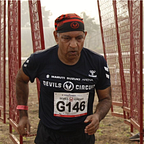Being a hindu now for 67 years, I just had an epiphany about my community. I just realised that what I believed was its greatest strength has actually been its greatest weakness. I got this jolt after hearing the social reformer, Sanjay Rajoura (Aisi Taisi Democracy fame) who moonlights as a stand-up comedian.
Hinduism lays a lot of emphasis on unquestioning respect for elders, particularly for parents. That social message, it seems, became the cause for hindus becoming bad citizens. Please note that my emphasis is on the ‘unquestioning’ part of the dictum, not the ‘respect’ part.
The message of hinduism is — your parents must be listened to. So far so good. As a general message, it is fine. The problem comes when the message becomes — your parents must be listened to, irrespective. The message is not to heed them generally, but always. Whether they are right or wrong. In any case, hindus are made to believe that parents, particularly the mother, simply can not be bad.
Now, don’t get me wrong. I’m not goading you to rebel against your parents. Am just pointing out the subtle influences of belief that that parents are to be followed, irrespective. While it is not said in so many words, it clearly implies — do so, even when they are wrong.
Quietly walking on that path, has done the hindus a lot of good in many circumstances. In several cases, it results in better bonding within the family. No doubt about it. However it also results in a mind-set that your inner circle is beyond questioning. You must follow it because it is yours, even if it is bad. It has made hindus an unquestioning community.
Not questioning the authority does have social benefits. It results in a more peaceful society. However, it also results in a society that keeps its eyes closed towards the wrong acts of those in authority. Then, in phase 2, it results in a mind set that those few who do question authority must be silenced. In phase 3, the good hindus go out and actually do so. As kids, they don’t question their parents, so as adults, they don’t question their Prime minister. In fact, they don’t question anyone with authority. It results in some terrible mothers-in-law, rapist babajis (religious leaders), battered wives and terrorism-charged people as lawmakers. No questioning of authority, please. We’re hindus.
Did you know how the poor Indians, mainly hindus, address the officials? They call them, ‘Mai baap’. It means, ‘You’re like my mother and father’. How will those who’ve never questioned their mother and father ever raise their heads before the Mai-Baap? This has created two classes within society — those to whom we bow unhesitatingly and therefore, those who must bow to us unhesitatingly.
I revel at the progress and victories of the Europeans — in battle, in business and in technology. As I see it now, they are good because they learnt early to question. Nothing was acceptable to them just because it came from a father (figure). For it to be accepted as good, it had to be seen as good be them. It helped develop a certain individuality, a daring in them. And they went out and conquered the world. Bad children, hindus may claim.
If social reforms are to take place in hinduism, it must start with allowing individuals to question even their parents. Once that starts, they’ll never see king (King Ram of Ayodhya, in hindu mythology) as a God — a person who threw out his pregnant wife to die in the jungles just because one of his citizens objected to her. They’d also not accept an archery teacher, Dronacharya, as teacher to be revered. Dronacharya was actually a blot on the teacher community, who conspired to get his favourite ( read ‘rich’) disciple remain №1, by getting the thumb of his contender, Eklavya, cut off. Then a son may also not accept the order of a mother to share his wedded wife with the four other brothers. Also the society may then vilify, not idolize, the five husbands for putting up their wife for gamble and then, sit quietly like impotents when she was being disrobed publicly. In those obedience-laden times, the eldest husband, Yudhishtir, was accorded the lofty title of Dharamraj (the epitome of religious purity). Wow.
The irony is that these incidents mentioned above are fully accepted by all hindus to have indeed taken place. No one says, ‘Oh no, this is not in our books, just been made up by the author.’ Instead, they say, ‘Yes, it happened, So bloody what? Those who did these acts were our Mai-Baaps (role models), so what’s the big deal?’
After we hindus become more questioning, we’ll say, ‘What is wrong for others, is wrong for powerful people too.’ We’ll then go out and conquer the world, even if we annoy our fathers (the ones worth annoying). We’ll also then question the supremacy of our ancient texts and see them as what they actually are — religious texts, not tomes of world class science.
One day, that change will take place. Then I’ll proudly say, ‘I am a hindu’.
